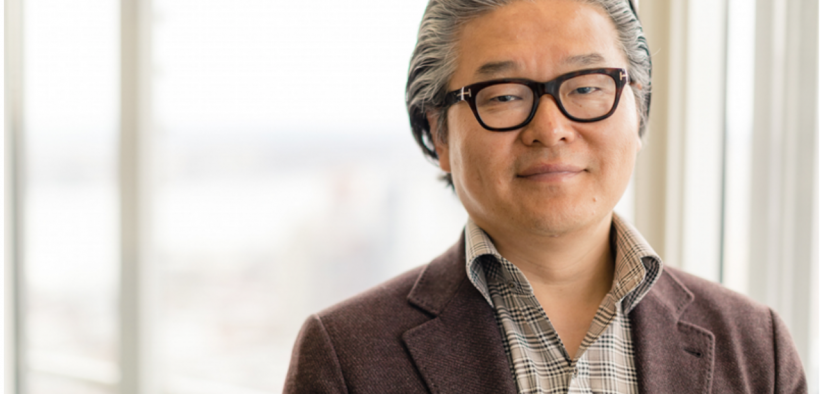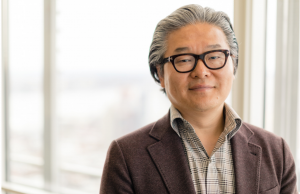Christian Billionaire and Philanthropist’s Bad Bets Rattle Wall Street

Nobody is sure how much the money maven and Christian philanthropist Sung Kook “Bill” Hwang was actually worth before his overly leveraged investment firm suddenly and dramatically ran out of cash last week. $10 billion? $20 billion? More? 
Now, banks around the world that helped underwrite his growth say they may have lost billions after his empire collapsed. A Bloomberg article entitled “One of World’s Greatest Hidden Fortunes Is Wiped Out in Days,” says Hwang and his company are at the center of “a multibillion-dollar fiasco involving secretive market bets that were dangerously leveraged and unwound in a blink.”
One veteran investment expert summed up the meltdown this way: “This has to be one of the single greatest losses of personal wealth in history.”
Money man with criminal past
Hwang’s father was a pastor and his mother was a missionary to Mexico. Hwang moved to the United States as a child and earned business degrees at UCLA and Carnegie Mellon University before becoming a protégé of hedge fund billionaire Julian Robertson. He is described as a devoted Christian who doesn’t drink or smoke.
Access to MinistryWatch content is free. However, we hope you will support our work with your prayers and financial gifts. To make a donation, click here.
Hwang founded his company, New York-based Archegos Capital Management, in 2013, naming the firm for the Greek word meaning leader or prince, a word the New Testament applies to Christ.
A trustee of Fuller Seminary, Hwang founded the Grace and Mercy Foundation, which in 2018 had income of nearly $50 million, assets of nearly $500 million, and donations of nearly $17 million to dozens of evangelical Christian organizations and other charities, including $2 million to Fuller, $5.5 million to the Fuller Foundation, and additional gifts to the Museum of the Bible, the Salvation Army, Young Life, the Navigators, Focus on the Family, Luis Palau Association, Prison Fellowship, International Justice Mission, InterVarsity Christian Fellowship, Cru, Youth for Christ, Military Community Youth Ministries, and many smaller groups.
He has also supported the communal reading of scripture, Christian work in South Korea, and the Liberty in North Korea, which helps people escape the totalitarian country.
It’s not clear what will happen with the remaining assets of the Grace and Mercy Foundation, which helped Hwang avoid capital gains taxes and gained him significant tax write-offs.
Viewers can still see videos of Hwang discussing the role of faith in his work at a Fuller website. Hwang was also listed as a contributor to Focus on the Family’s website, but the links no longer work.
At least some of these ministries were unaware of Hwang’s criminal past. In 2012 he settled a lawsuit with the US Securities and Exchange Commission. His hedge funds—Tiger Asia Management and Tiger Asia Partners—paid $44 million after he pled guilty to charges of insider trading and stock manipulation.
The 2012 settlement also required Hwang to stay away from the investment advisory industry, a technical requirement he met by establishing Archegos as a family office which oversees one family’s assets, not the assets of many investors, which meant the firm was not subject to stringent financial oversight and reporting.
Those who were aware of Hwang’s past believed his vibrant Christian faith and generous giving were signs he had been redeemed from his past.
“I’m like a little child looking for what can I do today, where can I invest, to please our God,” he said in one interview. “I’m not going to retire until he pulls me back.”
Luck runs out on risky bets
In the current crisis, Hwang apparently did nothing illegal, but his risky bets have led to the elimination of billions in assets and have left major banks that enabled his trades on the hook for his overreach.
Hwang bought and sold shares in stocks “on margin,” meaning he borrowed funds from banks, including Morgan Stanley, Goldman Sachs, Credit Suisse, Deutsche Bank, and the Japanese bank Nomura. Even banks that initially resisted working with Hwang came on board when they saw the lucrative commission and fees competing banks were earning.
In addition to leverage, Hwang used risky and complex financial instruments called derivatives, which have been the cause of previous stock scandals. And because Archegos didn’t market or promote itself to outside investors, much of the financial world was unaware of its activities.
Hwang was betting that the value of stocks such as ViacomCBS would rise, but when ViacomCBS announced it was selling additional shares, the stocks’ value decreased. That led Hwang’s banks to demand that he bring more collateral to the table. Bloomberg called this “one of the biggest margin calls of all time.”
When Hwang couldn’t comply, the banks started a massive sell-off of the billions worth of stock they owned. The fire sale only further reduced the stocks’ value. Nomura says it may be out $2 billion.
At one time during the past week, the value of ViacomCBS stock dropped by half. The banks that supported Hwang’s trading are still trying to ascertain how much they have lost, and won’t know until they have finished selling off the relevant stocks.
As CNBC reported, the episode “ignited a whopping $20 billion wave of forced liquidations at a slew of Wall Street banks.”
“When we create good companies through the capitalism that God has allowed, it enhances people’s lives,” Hwang said in a 2019 video. “God delights in those things.” But he didn’t comment on bad companies that harm people’s lives and do away with their assets.



